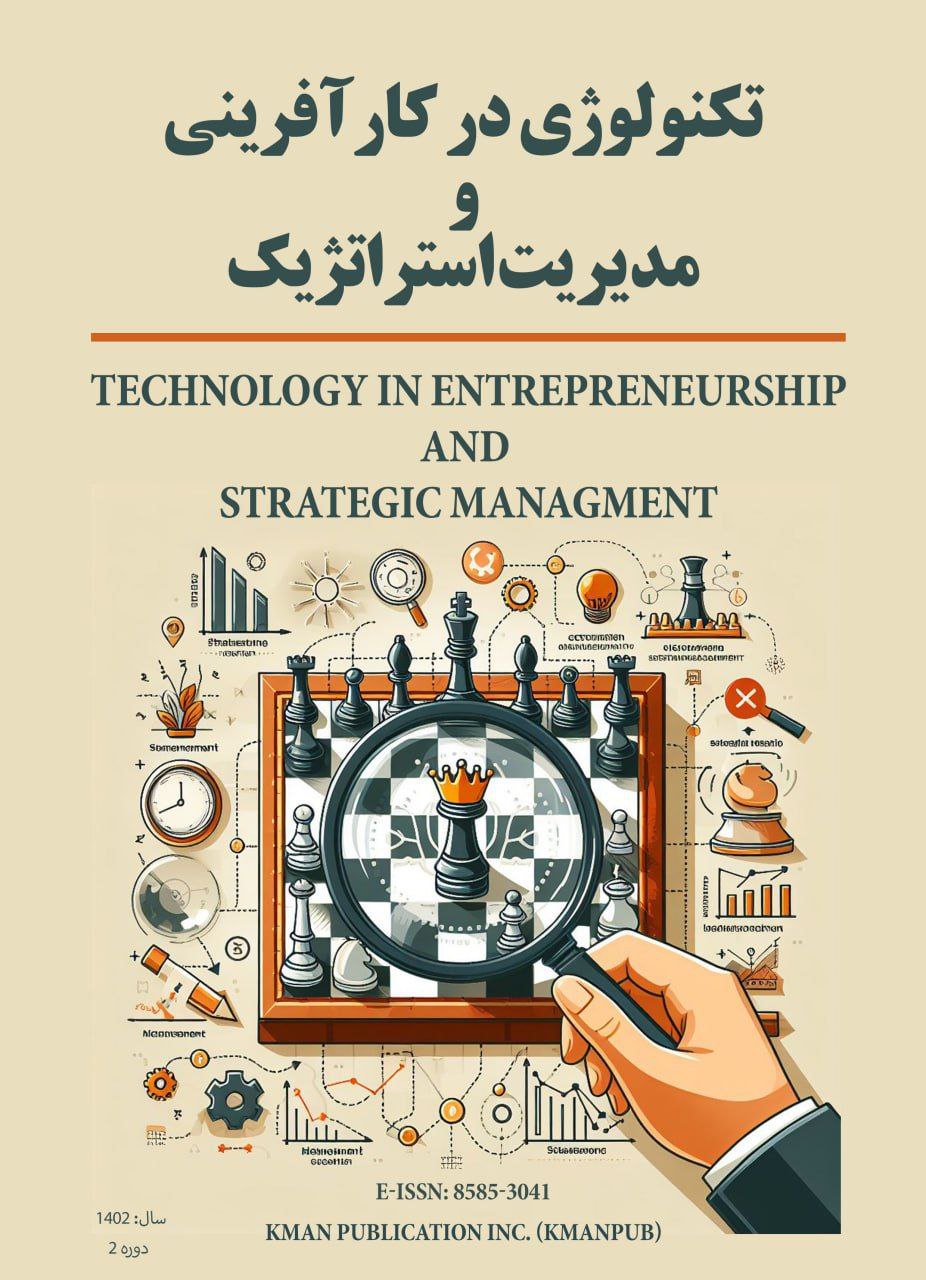Identification of Factors Affecting Business Process Management in Sports Startups (Case Study: Sports Services)
Keywords:
Business, Startup, Sports ServicesAbstract
The objective of this study was to explore and identify the factors affecting business process management in sports service startups in Iran. This research used a mixed-methods approach (qualitative and quantitative). The qualitative sample consisted of managers and experts knowledgeable about the topic, with the theoretical saturation point reached after 15 participants. In the quantitative section, the target population included PhD students, professors, and experts in sports management, as well as individuals with academic backgrounds and significant experience in sports startups. Based on the sample size formula for infinite populations, 384 participants were selected. Data collection tools in the qualitative phase included interviews and in-depth interviews, while in the second phase, a researcher-developed questionnaire was used. Data analysis in the qualitative phase was performed using grounded theory methodology through open coding, axial coding, and selective coding. For the quantitative analysis, construct validity of the questionnaire was calculated, and exploratory factor analysis was conducted using SPSS 20 and Smart PLS3 software. The results of the study indicated that variability (the increasing changes in marketing of sports startups and adapting to these changes through the design of informational websites) with a path coefficient of 0.920, sustainability (active presence in popular social media networks and efforts to maintain and sustain sports businesses in the long term) with a path coefficient of 0.951, resource acquisition (having a strong marketing team in businesses and hiring specialized personnel in startups) with a path coefficient of 0.941, and knowledge management (increasing knowledge about sports services in businesses and expanding information about sports startups) with a path coefficient of 0.951 were identified as causal conditions for business process management in sports service startups in Iran. Overall, these results emphasize the importance of developing and strengthening the factors of variability, sustainability, resource acquisition, and knowledge management in sports service startups. It is recommended that managers and policymakers in this field focus on designing and implementing strategies that enhance these conditions in emerging organizations.
Downloads
References
Berg, V., Birkeland, J., Nguyen-Duc, A., Pappas, I. O., & Jaccheri, L. (2020). Achieving agility and quality in product
development-an empirical study of hardware startups. Journal of Systems and Software, 167(1).
https://doi.org/10.1016/j.jss.2020.110599
Bocken, N., & Snihur, Y. (2020). Lean Startup and the business model: Experimenting for novelty and impact. Long Range
Planning, 53(4). https://doi.org/10.1016/j.lrp.2019.101953
Elyasi, M., Mohammadi, M., Jafari, H., & Karami, P. (2019). A review of the global experiences of startup companies in the
field of sports and physical health. Knowledge-based Technology Publications.
Hattink, B., & Groen, A. (2021). A system innovation related to sports entrepreneurship. In Innovation and Entrepreneurship
in Sport Management. Edward Elgar Publishing. https://doi.org/10.4337/9781783473960.00011
Hattink, B., & Wichers, J. (2021). Sports and entrepreneurship. In World Encyclopedia of Entrepreneurship. Edward Elgar
Publishing. https://doi.org/10.4337/9781839104145.00075
Hayduk, T. (2020). The Future for Sport Entrepreneurship. In Sport Entrepreneurship and Public Policy (pp. 135-152).
https://doi.org/10.1007/978-3-030-29458-8_9
Kwon, S., Liu, X., Porter, A. L., & Youtie, J. (2019). Research addressing emerging technological ideas has greater scientific
impact. Research Policy, 48(9). https://doi.org/10.1016/j.respol.2019.103834
Satar, M. S., & John, S. (2016). A conceptual model of critical success factors for Indian social enterprises. World Journal of
Entrepreneurship, Management and Sustainable Development, 12(2), 113-138. https://doi.org/10.1108/WJEMSD-09-
-0042
Silva, E., Beirão, G., & Torres, A. I. (2023). How Startups and Entrepreneurs Survived in Times of Pandemic Crisis:
Implications and Challenges for Managing Uncertainty. Journal of Small Business Strategy.
https://doi.org/10.53703/001c.72084
Souza, C. M. (2019). A framework for identification, selection and collaboration of Corporations with Start-ups within Open
Innovation https://repositorio-aberto.up.pt/bitstream/10216/121642/2/344594.pdf
Stefanovic, I., Prokic, S., & Rankovic, L. (2010). Motivational and success factors of entrepreneurs: the evidence from a
developing country. Original scientific paper, 28, 251-269.
nce_from_a_Developing_Country
Terra, N., Rodrigues, J. C., & Maia, C. (2019). Business model evolution in university startups of the healthcare sector. 2019
IEEE International Conference on Engineering, Technology and Innovation (ICE/ITMC),
Yearworth, M. (2010). Inductive Modelling of an Entrepreneurial System. 28th International System Dynamics Conference,
Zhuge, K. (2023). Can Adopting Lean Startup Strategy Promote the Sustainable Development of New Ventures? The Mediating
Role of Organizational Iterative Learning. PLoS One, 18(8), e0290849. https://doi.org/10.1371/journal.pone.0290849
Zimmerman, M. A., & Chu, H. M. (2013). Motivation, Success, and Problems of Entrepreneurs in Venezuela. Journal of
Management Policy and Practice, 14(2), 76.
https://www.proquest.com/docview/1429361694?sourcetype=Scholarly%20Journals
Downloads
Published
Submitted
Revised
Accepted
Issue
Section
License
Copyright (c) -1 Journal of Technology in Entrepreneurship and Strategic Management (JTESM)

This work is licensed under a Creative Commons Attribution-NonCommercial 4.0 International License.











